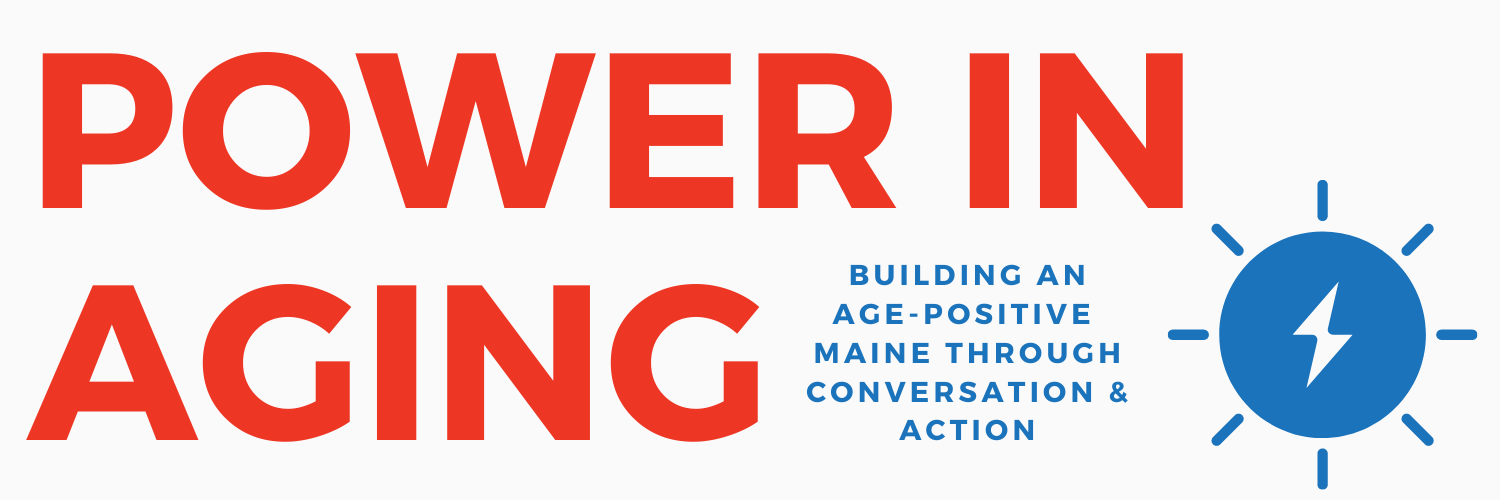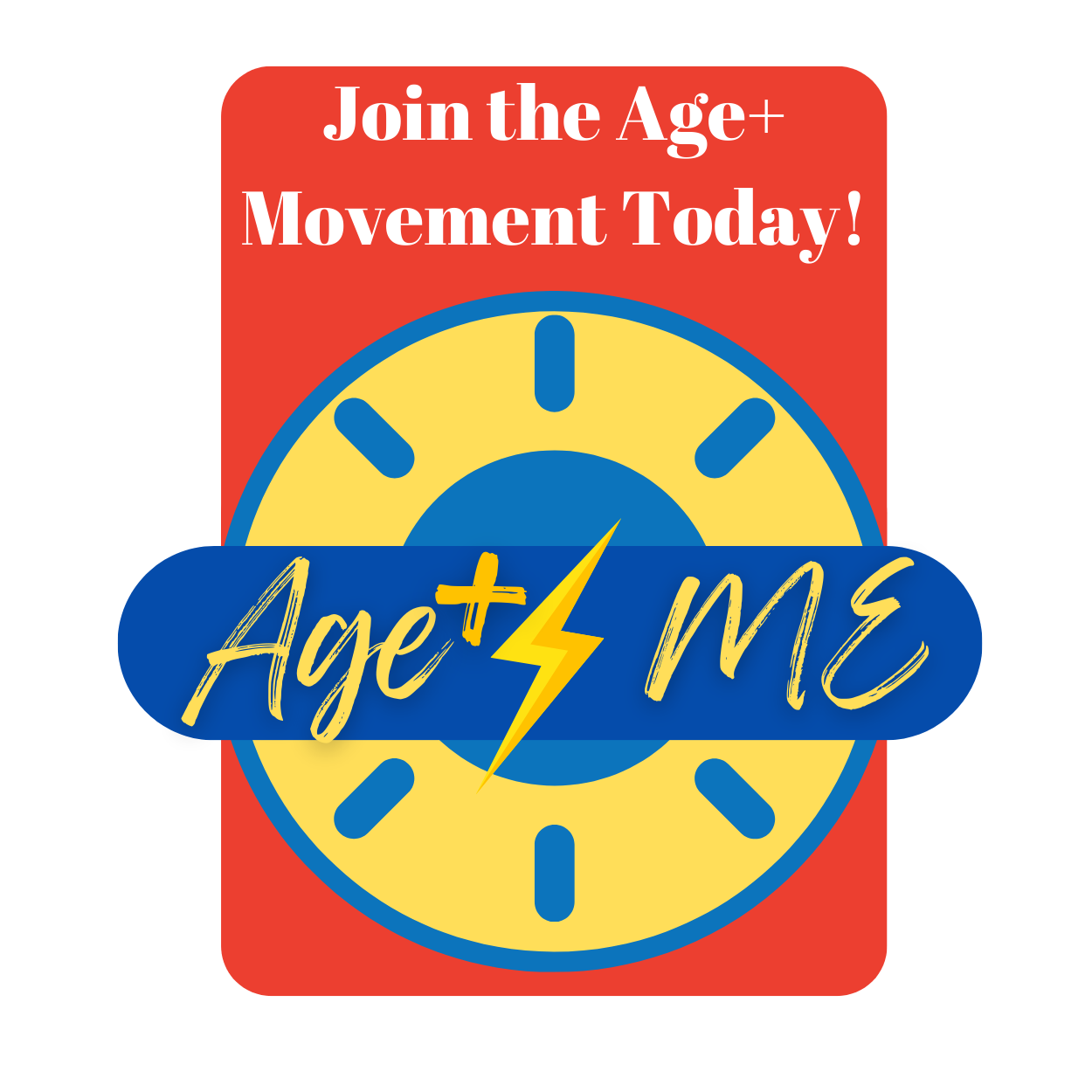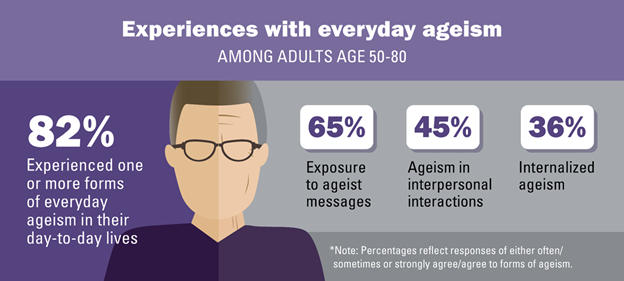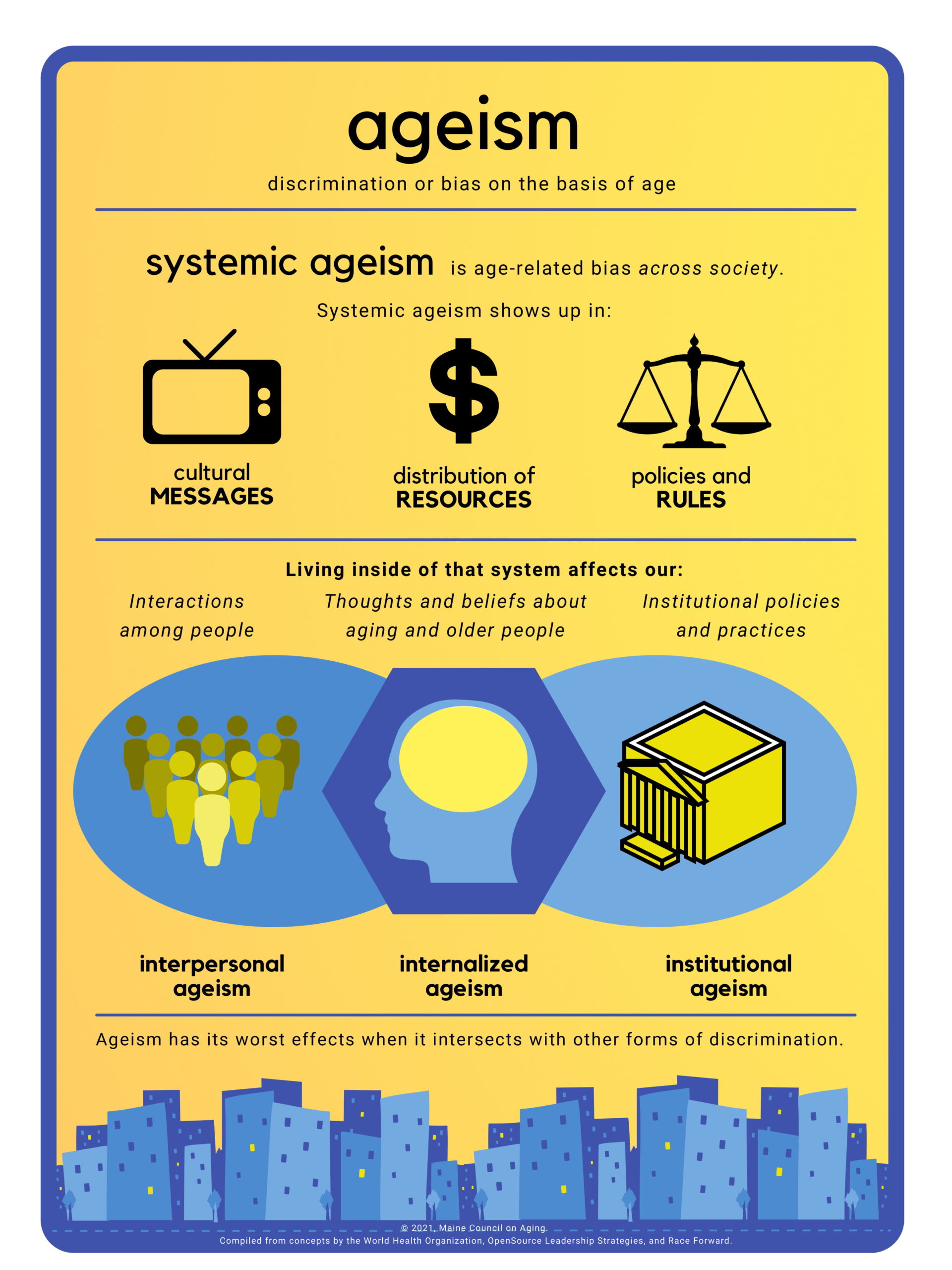
Let’s become anti-ageist together to build an age-positive culture in Maine!
People who live with age-positive views and in age-positive cultures live 7.5 years longer than those who don’t, with fewer chronic conditions and less anxiety. People who live with purpose – a reason to get up in the morning – live longer and have fewer cognition problems than those who don’t. Universally, research shows we’re also happiest later in life than at any other time of life.
Yet, our current culture is steeped in negative stereotypes that equate the very act of aging with disease, disability, and death. Popular media pushes us to “fight aging” and too regularly associates age with decline. We actively recruit younger workers and pass over older workers because of unproductive stereotypes. We literally push older people out of our communities, segregating them together where we don’t have to watch the inevitable aging process we think we understand.
“Ageism pervades many institutions and sectors of society, including those providing health and social care, the workplace, the media and the legal system.” Global Report on Ageism, March 2021
Ageism not only damages our health and well-being, it is also a major barrier to enacting effective policies that promote healthy aging. However, just being aware of our subconscious age-biases makes us less likely to act on them. This is simple math:

Putting this knowledge to work, we’ve launched an anti-ageism movement in Maine called the Power in Aging Project, funded by the Maine Community Foundation! The Power in Aging Project was launched in 2021 as part of the Maine Council on Aging’s campaign to dismantle ageism and build an Age-Positive Maine.
The Project’s primary strategy is to engage audiences from different sectors in direct conversations about age-bias, the impacts of ageism, and the benefits of living and working in an age-positive culture. We are creative and flexible, able to calibrate these interactive, reflective, and thought-provoking Power in Aging sessions to any end-user for an hour up to a whole day.
Since launching the Power in Aging Project we’ve hosted thousands of people in presentations for all kinds of organizations, including L.L. Bean, Town & Country Federal Credit Union, Diversity Hiring Coalition of Maine, the Maine Public Health Association, Organization of Maine Nursing Leadership, UnitedHealthCare, all employees of the State of Maine, and many others. We have also facilitated conversations with our member organizations, media outlets, health systems, human resources professionals, and more.
Why do these conversations matter?
Conversations that help people become aware of age-bias will lead to a more age-positive culture in Maine and support for change.
Did you know?
82% of adults age 50-80 experienced ageism in their daily lives
Bias against older workers cost the U.S. economy an estimated $850 billion in gross domestic product in 2018.
You can live 7.5 years longer with fewer chronic conditions if you embrace age-positive views.
Understanding Ageism to Build an Age-Positive Culture in Maine
Understanding the structure and levels of ageism and how age-bias manifests itself into our society can help us to combat ageism head on to build a more age-positive culture in Maine.
The Levels of Ageism
Systemic ageism
Discrimination on the basis of age across society.
Internalized ageism
Internalized ageism lies within individuals.
Interpersonal ageism
Interpersonal ageism occurs between individuals.
Institutional ageism
Institutional ageism occurs within institutions and systems of power.
The Structure of Ageism
The aspects of ageism show up in several aspects:
Messages
Such as cultural beliefs, attitudes, stereotypes and jokes
Resources
Such as the distrubution of resouces for what people need to survive and thrive
Rules
Such as policies, laws, practices, as well as unwritten rules
Flipping the Switch on Ageism
Solutions to ageism have the exact same structure: messages, rules, and resources.
Conversations to understand and address ageism helps to dismantle ageism across all levels.
Messages
Changing beliefs and attitudes
Resources
Changing distribution of resources
Rules
Changing policies and practices
What does the Power in Aging Project do?
The Power in Aging Project offers fully customized presentations tailored to your business or organization and ongoing technical assistance. Below are examples of the types of presentations and conversations hosted by the Power in Aging Project. Sessions can be customized to any audience and for any length of time to suit the needs of any group or organization.
Power in Aging Presentation
This 90-minute session can be curated for any audience.
Age Positive Media Presentation
A presentation for Media highlights age-positive reporting using the AP Style Guide’s language recommendations.
Age Positive Workplace Presentation
The Age Positive Workplace presentation, designed for HR Professionals and Managers, highlights the power of older workers and multi-generational work teams, provides recruitment and retention strategies, and discusses the importance of including age in DEI and addressing ageist stereotypes and practices in the workplace.
Age Positive Healthcare Presentation
The Age Positive Healthcare presentation highlights impacts of ageism in healthcare, best practice to address age-bias and provide age-positive treatment, and discusses the effect on our health of healthy aging practices and holding age positive beliefs.
Disrupting Ageism Intensive
One day interactive in-person training for teams on
age-bias and the benefits of age-inclusive supports,
policies and practices. This is a condensed version of
our successful Leadership Exchange on Ageism.
Technical Assistance
Help with design, problem solving, ageism audit, and more – let us know how we can help!
Schedule a Power in Aging Presentation today!
For more information and to inquire about scheduling a presentation,
contact Maureen O’Connor, Power in Aging Project Director.
Leadership Exchange on Ageism
A special initiative of the Power in Aging Project is facilitating the first in the nation Leadership Exchange on Ageism. Designed for executive business, policy, and community leaders, Leadership Exchange on Ageism (LEA) is a fourteen-hour intensive, participatory, peer-learning-centered leadership development experience.
Learn more about the Leadership Exchange on Ageism
What We're Reading
Tools & Resources for Interrupting Ageism
Here are a few tools and resources to get started on your anti-ageism journey:
Resources for Reframing
APA STYLE: AGE
When you are writing, you need to follow general principles to ensure that your language is free of bias. Here we provide guidelines for talking about age with inclusivity and respect. Click link above to read more
See an example of the APA Style guidelines in a recent article “The View from Here: Attitudes about aging are no joke” Portland Press Herald, January 31st, 2021
Gaining Momentum: A FrameWorks Communications Toolkit
The way Americans currently think about aging creates obstacles to productive practices and policies. How can the field of aging help build a better understanding of aging, ageism, and what it will take to create a more age-integrated society? Click the link above to read more
The New Map of Life: A Report from The Stanford Center on Longevity
APA (American Pyschological Association) RESOLUTION on Ageism
Negative stereotypes of aging (ageism) continue to raise serious problems that lead to discrimination and unfair treatment of older adults. Click the link above to read more
Learn more through Webinars
Webinar: Ageism is Bad for Your Health
Hosted by the Tri-State Collaborative on Aging
This webinar focuses on ageism, the negative impacts on our health and how we can change the conversation moving forward. During the recent COVID-19 response we have seen a marked increase in ageist attitudes–from naming conronavirus the “Boomer Buster” to cartoons asking people to choose grandma or the economy. Watch this webinar to learn more about changing the conversation on aging in our current climate and how we move forward together with effective messaging. This webinar includes presentations by re-framing experts from New Hampshire, Vermont, Maine and from the national initiative.
Webinar: FrameWorks
Hosted by the Tri-State Collaborative on Aging
This webinar explored key findings from a series of FrameWorks studies that were conducted in partnership with a collaboration of leading aging organizations and funders. The studies were designed to explore how the public views older adults in this country and how media and expert discourse help shape these understandings. The research compares what experts say about older adults to what the public perceives to be true. This process has found profound differences, with deep implications for the way we need to communicate about aging services and policies. This webinar discusses key findings from this research and concluded with a discussion of implications and next steps.
Webinar: FrameWorks 2.0
Hosted by the Tri-State Collaborative on Aging
This webinar, led by the FrameWorks Institute, will offer guidance on how to talk about aging, demographic change, and elder abuse in ways that foster greater public understanding of these issues and promote positive social change. It is the “part 2” of the original Frameworks webinar (see above).





